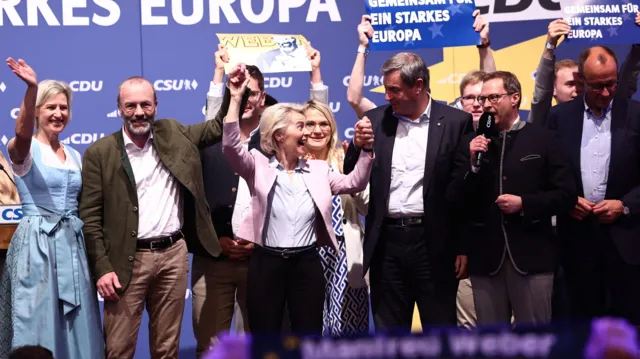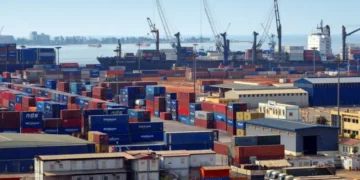In a night of dramatic election results across Europe, French President Emmanuel Macron has announced a bombshell snap parliamentary election after being defeated by the far right in the European elections. Macron’s centrist Renaissance party was unable to overcome the National Rally party led by Marine Le Pen and Jordan Bardella. The result is a significant gain for Europe’s far-right parties, with National Rally securing more than 30% of the vote, double that of Macron’s party.
While France’s result made headlines, the broader story of Europe’s four-day vote marathon belonged to the parties of the center-right. They strengthened their majority in the European Parliament, with victories in Germany, Greece, Poland, and Spain, and significant advances in Hungary, where Prime Minister Viktor Orban’s dominance was challenged.
Ursula von der Leyen, the center-right head of the European Commission, acknowledged that the center was holding, but also noted that the extremes on the left and right had gained support. She emphasized the need for great responsibility among the parties in the center to maintain stability.
Contrary to predictions, the far right did not experience a significant surge across Europe. In the Netherlands, Geert Wilders’ Freedom Party came second, while in Belgium, the separatist Vlaams Belang lost to the nationalist New-Flemish Alliance. The results varied from country to country, highlighting the diverse political landscape within Europe.
Germany’s opposition conservatives emerged as the frontrunners, capturing 30% of the vote. However, Chancellor Olaf Scholz’s SPD party suffered its worst-ever result in a European election, coming third behind the far-right Alternative for Germany (AfD). The AfD, despite controversies and scandals, held onto its support and declared that the only way for them was up.
Other notable performances included a new anti-migrant far-left party, BSW, led by Sahra Wagenknecht, and the far-right Brothers of Italy in Italy, which defeated the center-left Democratic Party. Austria’s far-right Freedom Party FPÖ was on track for a narrow victory.
While the results varied across countries, with some far-right parties underperforming and others overperforming, the overall political landscape in Europe has shifted. The center-left struggled to hold back the surge from the right, and left-of-center governments remain a minority in the EU. However, there were victories for the Green-Labour alliance in the Netherlands, the Socialist opposition in Portugal, and the opposition Green-Left party in Denmark.
The election results have sparked discussions about the future of Europe and the implications of the rise of far-right parties. Some experts argue that the results should not push a government out of a country, while others emphasize the need for center parties to address the concerns and grievances that have fueled the rise of the far right.
As Europe grapples with these election outcomes, the continent’s political landscape is evolving, with implications for policies, alliances, and the future direction of the European Union. The next steps taken by political leaders will shape the course of Europe in the coming years.









